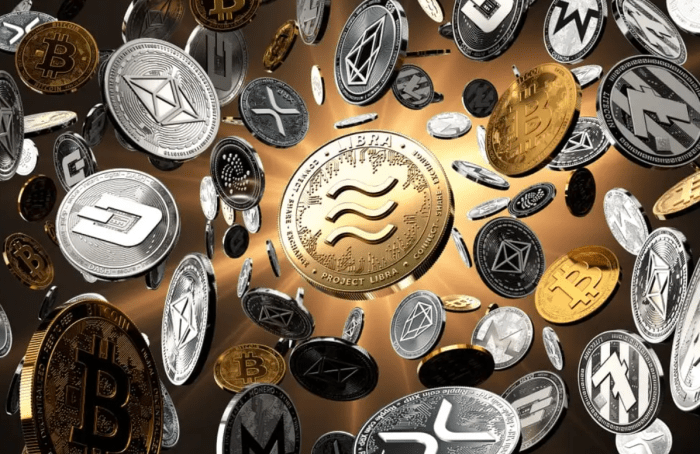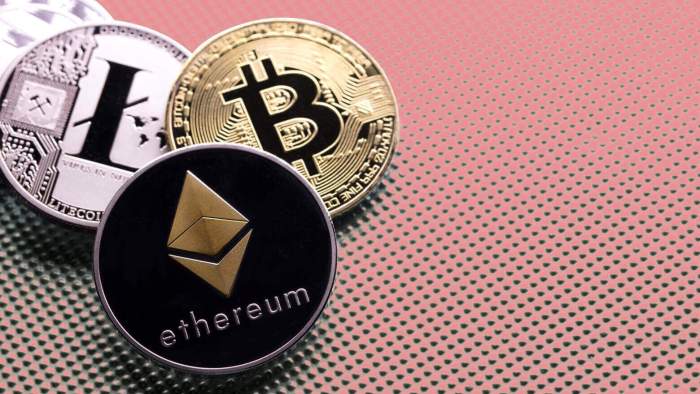Kicking off with altcoins guide, this opening paragraph is designed to captivate and engage the readers, setting the tone for an informative journey into the world of alternative cryptocurrencies. From understanding the basics to exploring investment strategies, this guide has got you covered.
Whether you’re a seasoned investor or a beginner looking to dip your toes into the world of altcoins, this comprehensive guide will provide you with all the essential information to navigate this exciting market.
Altcoins Overview: Altcoins Guide

Altcoins, or alternative cryptocurrencies, are digital currencies that serve as an alternative to Bitcoin. While Bitcoin was the first cryptocurrency created, altcoins have been developed with different features and functionalities to address specific needs in the market.
Popular Altcoins and Unique Features
Some popular altcoins in the market include:
- Ethereum: Known for its smart contract functionality, allowing for the creation of decentralized applications.
- Ripple: Focuses on facilitating international transactions with low fees and fast processing times.
- Litecoin: Offers faster transaction confirmation times and a different hashing algorithm than Bitcoin.
Benefits of Investing in Altcoins
Investing in altcoins can have several advantages over traditional investments, such as:
- Diversification: Altcoins provide an opportunity to diversify your investment portfolio beyond traditional assets like stocks and bonds.
- Potential for High Returns: Some altcoins have experienced significant price increases, offering the potential for high returns on investment.
- Innovation: Altcoins often introduce new technologies and features that can drive innovation in the cryptocurrency space.
Altcoins Investment Strategies

Investing in altcoins can be a lucrative venture if approached with the right strategies. It’s essential to consider factors like risk tolerance, investment goals, and market trends when deciding on your approach. Here are some key strategies to consider:
Long-term Holding vs. Short-term Trading
When it comes to investing in altcoins, you can choose between long-term holding and short-term trading. Long-term holding involves buying and holding onto altcoins for an extended period, usually with the expectation of significant price appreciation. On the other hand, short-term trading involves buying and selling altcoins within a shorter timeframe to profit from price fluctuations.
- Long-term Holding: Considered less risky than short-term trading, as it allows you to ride out market volatility and benefit from long-term growth potential.
- Short-term Trading: Requires active monitoring of the market and quick decision-making to capitalize on short-term price movements.
Research and Evaluation
Before investing in any altcoin, it’s crucial to conduct thorough research and evaluation to make informed decisions. Consider factors like the team behind the project, technology, market demand, competition, and potential for adoption.
Always look beyond the hype and consider the fundamentals of the altcoin before investing.
- Research the team: Look into the experience and expertise of the team members to assess their ability to deliver on the project.
- Evaluate the technology: Understand the technology and innovation behind the altcoin to gauge its potential for success in the market.
- Market demand and competition: Analyze the market demand for the altcoin and evaluate its competition to assess its growth prospects.
Diversification of Portfolio
Diversification is key when building an altcoin portfolio to mitigate risk and maximize returns. By spreading your investments across different altcoins, you reduce the impact of volatility in any single asset on your overall portfolio.
- Allocate investments across multiple altcoins to minimize risk and exposure to market fluctuations.
- Consider diversifying across different sectors or use cases to capitalize on various opportunities in the market.
Altcoin Wallets and Security
When it comes to storing your altcoins, having a secure wallet is crucial to protect your investments. Let’s dive into the different types of wallets available and best practices for keeping your altcoins safe.
Types of Altcoin Wallets
- Hardware Wallets: These are physical devices that store your altcoins offline, making them less vulnerable to hacking attacks.
- Software Wallets: These are digital wallets that can be accessed through desktop or mobile applications, providing convenience but potentially more susceptible to cyber threats.
- Paper Wallets: A paper wallet is a physical document containing your altcoin public and private keys, offering an offline storage option.
Securing Your Altcoin Wallet
- Use Strong Passwords: Create complex passwords and enable two-factor authentication for an added layer of security.
- Keep Backup Copies: Regularly backup your wallet data and store it in a secure location to prevent loss in case of device failure.
- Avoid Public Wi-Fi: Be cautious when accessing your wallet on public networks to prevent unauthorized access to your funds.
Importance of Backup and Recovery, Altcoins guide
Backup your wallet regularly and securely store your recovery seed phrase. In the event of device loss or failure, having a backup will allow you to restore access to your altcoins.
Altcoin Trading Platforms
When it comes to trading altcoins, choosing the right platform is crucial for success in the cryptocurrency market. There are several cryptocurrency exchanges that offer altcoin trading, each with its own features and benefits. Understanding how to use these platforms effectively can help you buy, sell, and trade altcoins efficiently while minimizing risks.
Comparison of Cryptocurrency Exchanges
- Exchanges like Binance, Coinbase, and Kraken offer a wide range of altcoins for trading, providing liquidity and volume for various cryptocurrencies.
- Some platforms focus on specific altcoins or trading pairs, catering to niche markets and offering unique trading opportunities.
- Consider factors like fees, security measures, user interface, and customer support when choosing a trading platform for altcoins.
Using Trading Platforms for Altcoin Trading
- To start trading altcoins, create an account on a cryptocurrency exchange, complete the verification process, and deposit funds into your account.
- Use the trading interface to place buy or sell orders for altcoins, taking advantage of market orders, limit orders, and stop-loss orders to manage your trades effectively.
- Monitor market trends, news, and price movements to make informed trading decisions and maximize your profits while minimizing losses.
Risks of Altcoin Trading on Different Platforms
- Security risks exist on all cryptocurrency exchanges, with the potential for hacking, phishing attacks, and theft of funds if proper security measures are not in place.
- Some platforms may have lower liquidity for certain altcoins, leading to price manipulation, slippage, and difficulty in executing trades at desired prices.
- Regulatory risks vary across exchanges, with some platforms facing legal challenges or restrictions that could impact the trading of specific altcoins or the withdrawal of funds.